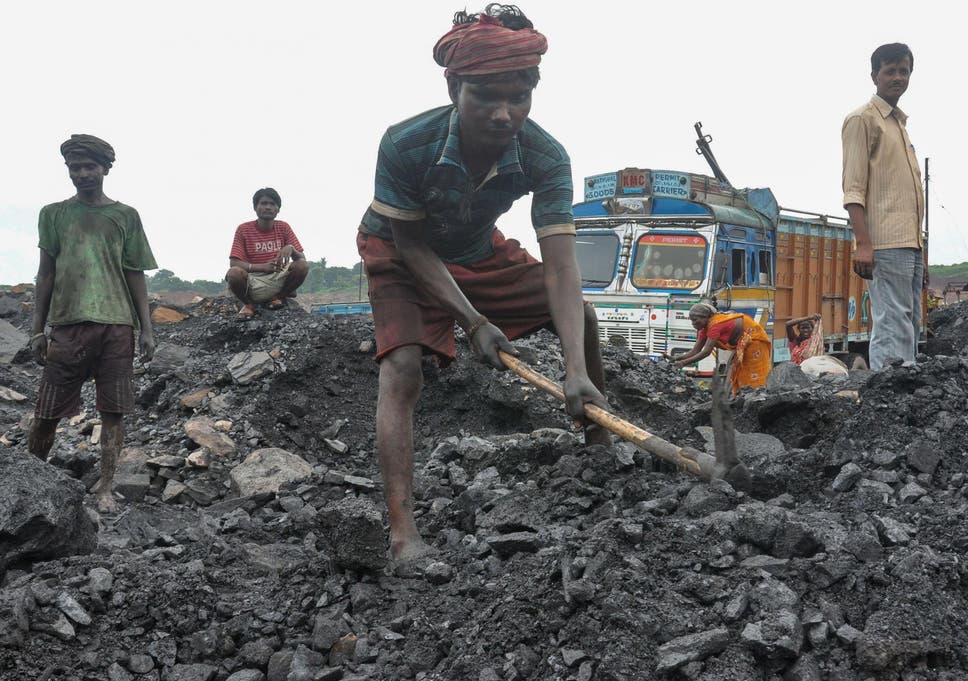https://www.independent.co.uk/environment/coal-demand-india-southeast-asia-fossil-fuels-climate-change-global-warming-a8689536.html
Coal will continue to stay high on the agenda for the next five years despite much of Europe and North America phasing out the dirtiest of all fossil fuels.
The International Energy Agency predicted demand will remain steady at least until 2023, due to strong growth in India and Southeast Asia.
More stringent air quality and climate change policies, alongside the declining cost of renewable energy sources and abundant supplies of gas have all made coal an increasingly less attractive option.
But despite these trends, after demand for coal increased in 2018 its contribution to the energy mix will only drop slightly by around 2 per cent to 25 per cent in 2023.
“Despite significant media attention being given to divestments and moves away from coal, market trends are proving resistant to change,” the report said.
Many European countries have already set imminent deadlines for the phase-out of coal (by 2025 in the UK), as it contributes disproportionately to carbon emissions from the energy system.
However, coal is still seen as an appealing prospect for nations including Indonesia, Vietnam, Philippines, Malaysia and Pakistan.
India meanwhile is expected to see an increase in coal demand of 4 per cent each year.
“The story of coal is a tale of two worlds with climate action policies and economic forces leading to closing coal power plants in some countries, while coal continues to play a part in securing access to affordable energy in others,” said Keisuke Sadamori, director of energy markets and security at the IEA.
A glacier’s collapse shows climate impact
Show all 20
“For many countries, particularly in South and Southeast Asia, it is looked upon to provide energy security and underpin economic development.”
China, which currently accounts for nearly half of the world’s coal consumption, is expected to see coal demand fall by 3 per cent over the next three years.
Coal was recently in the spotlight at the United Nations’ important COP24 climate talks, due to host nation Poland’s continued enthusiasm for the fossil fuel.
Unlike many European nations, coal-fired generation still comprises 80 per cent of the Polish electricity supply.
On the other side of the Atlantic, US president Donald Trump has been accused of rolling back progress on cutting coal in an attempt to revitalise the ailing industry.
With the Intergovernmental Panel on Climate Change warning that the world needs to be effectively carbon neutral by 2050 to avoid disastrous global warming, many see coal as completely incompatible with climate targets.
The IEA said if their predicted trends pan out there will be a vital need to invest in carbon capture, utilisation and storage (CCUS) – technologies that can suck CO2 emissions from the atmosphere.
Mr Sadamori noted the world’s approach “must rely on all available options – including more renewables, of course – but also greater energy efficiency, nuclear, CCUS, hydrogen and more.”







沒有留言:
張貼留言